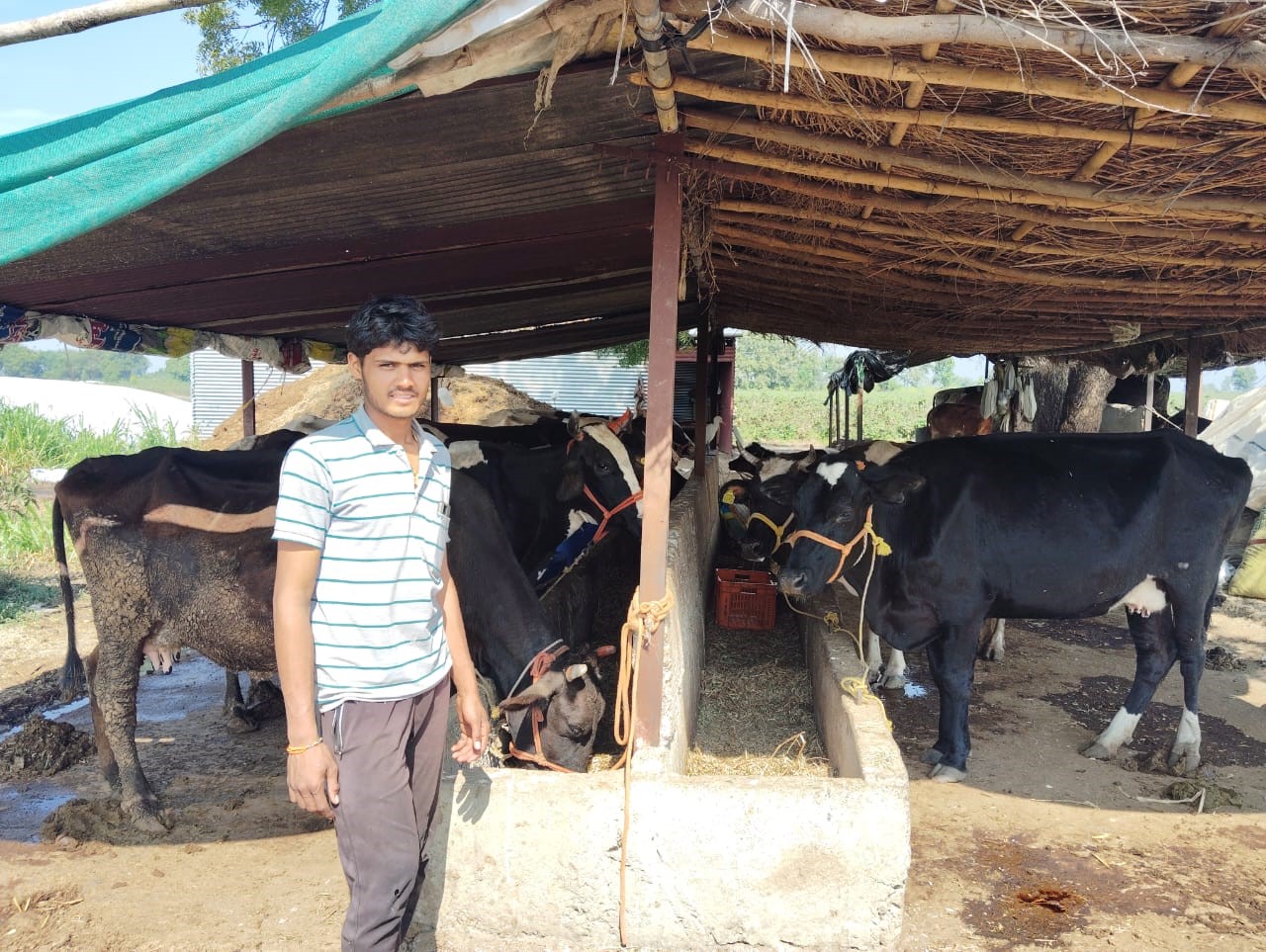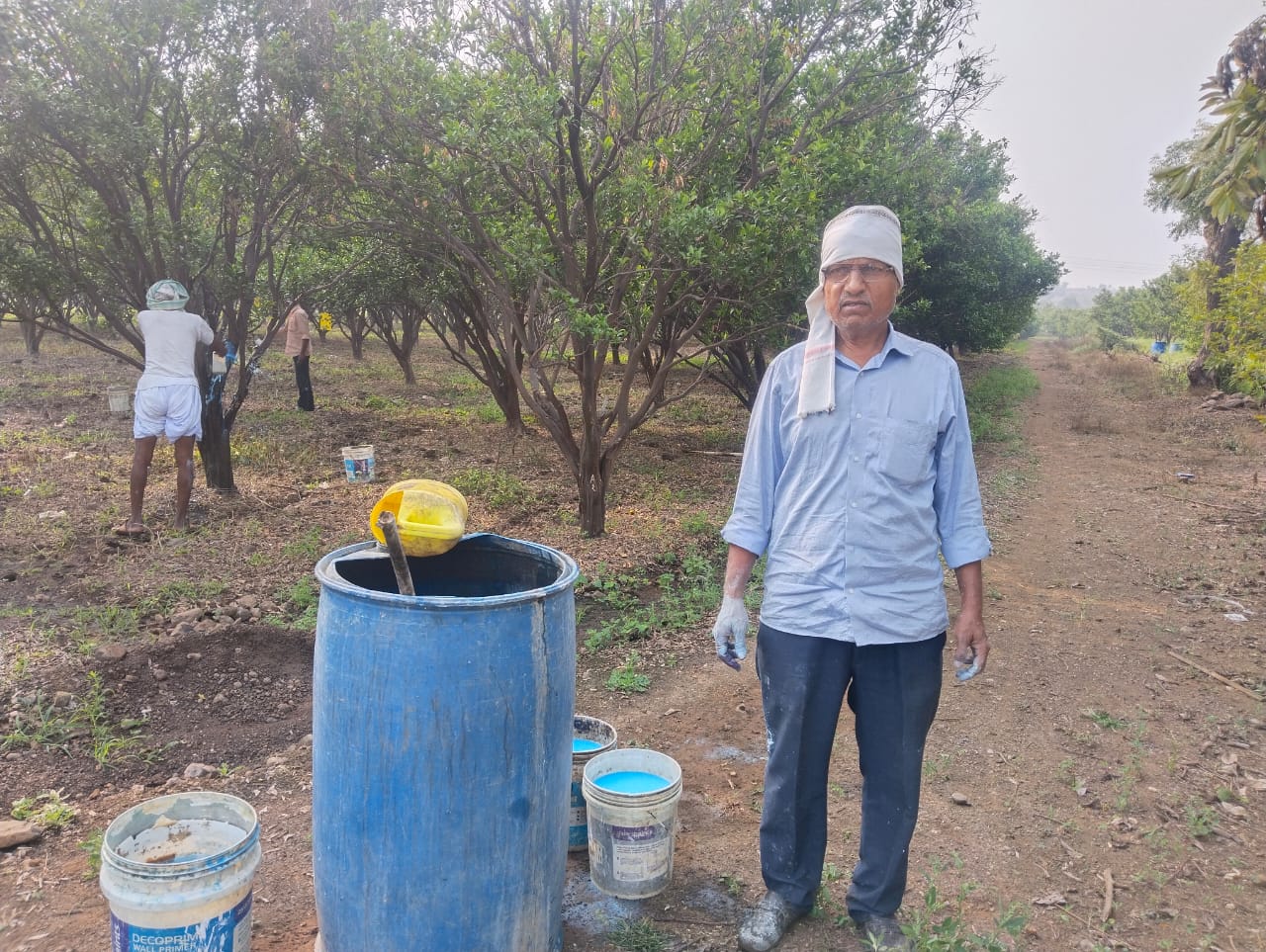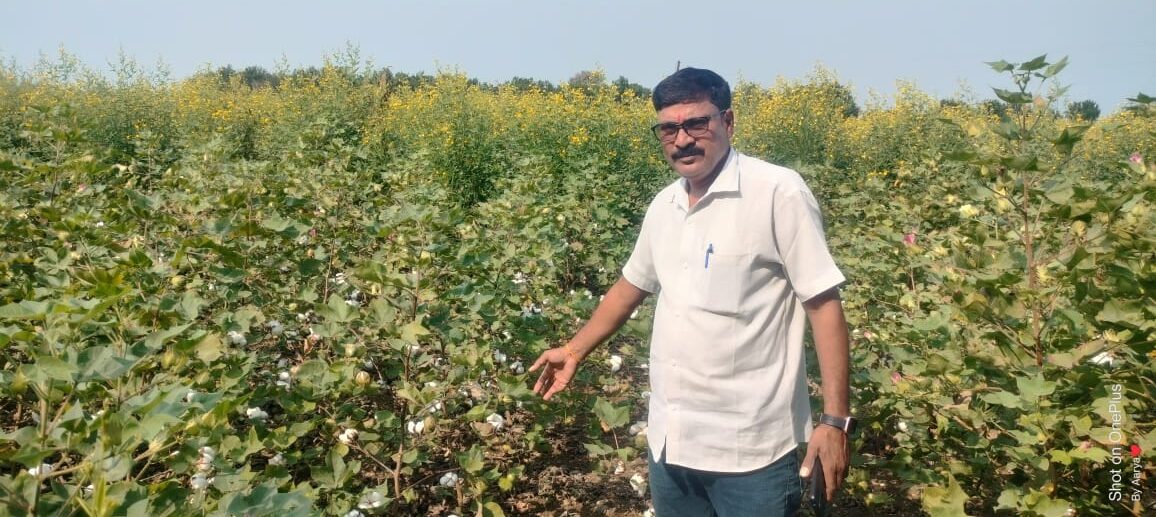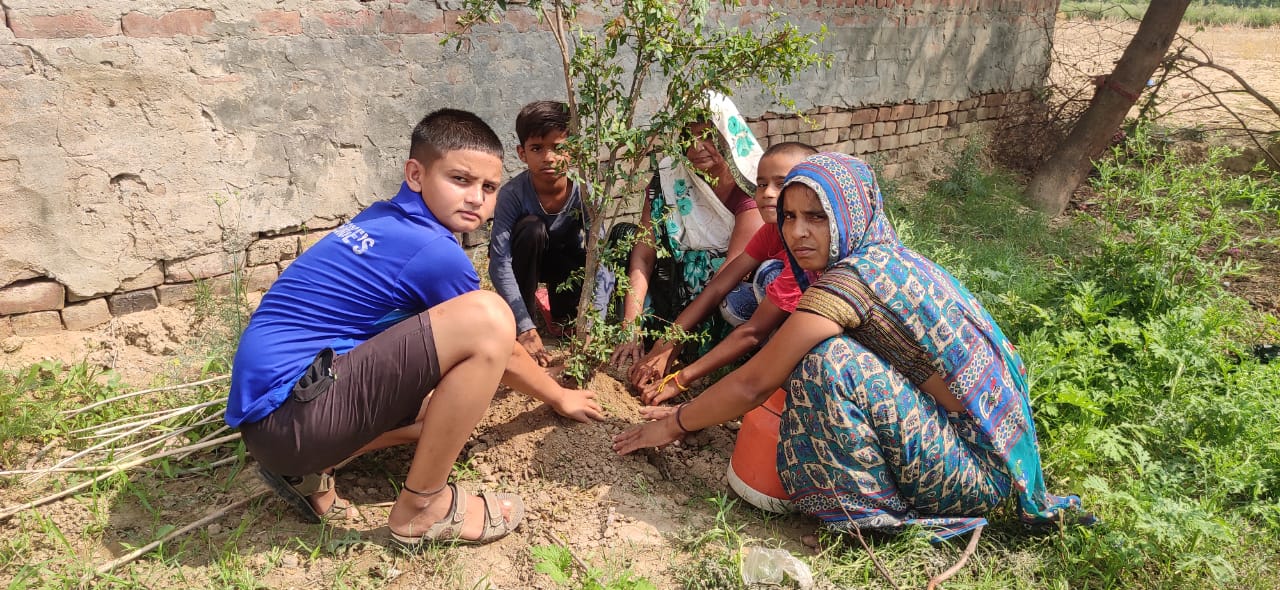Smart devices like automated hyper-local weather stations, crop view cameras, insect traps and soil moisture sensors are helping farmers make informed decisions on agricultural practices
“I am not going to stop until I do my best for my farm.” Sona Bai, 50, does not believe in giving up.
Sona owns 1.5-acre land in Bamaniya Khedi village of Agar Malwa district, Madhya Pradesh. For a small soy farmer, running a family of six, including her grandson who goes to school, with meagre farm income is daunting, to say the least.
“Years of monocropping had destroyed my farm. The village shopkeeper would tell me which fertilizers to use and I would buy them without knowing or understanding if my crop really needed these. And then, sudden rains would often destroy my standing crop,” she says.
“Solidaridad became my pillar of support,” says Sona, one of the 6,500 active farmersin the district who are part of the Smart Agri Project, a CSR initiative of Vodafone Idea and Indus Towers, implemented by Solidaridad. Agar Malwa is among the districts where the first phase of the project kicked off in January 2020.
The Smart Route to Farming
Small and marginal farmers make up for more than 80% of the total farmers in India, but they face several challenges and have limited resources to overcome these, even as there is increasing pressure to produce more to feed a growing population. From lack of access to vital agriculture-related information, to water shortage and dependence on erratic monsoons, to rise in input costs and low yield, a farmer is fighting on many fronts.
Technology can be an enabler for such farmers, helping them access critical information regarding their crop and farm better and in a smart way. The Smart Agri project aims to empower small farmers by:
- Enhancing their livelihood through sustainable and climate-resilient farming approaches and use of smart devices/solutions based on Artificial Intelligence and IoT.
- Building farmer capacity while also increasing farm output in terms of yield, reduced input costs, and other benefits.
- Promoting farmer(s)-owned producer companies and rural enterprises to facilitate farmer’s access to input and markets.
- Building a learning ecosystem in the project areas, raising awareness about nutrition, health and hygiene.
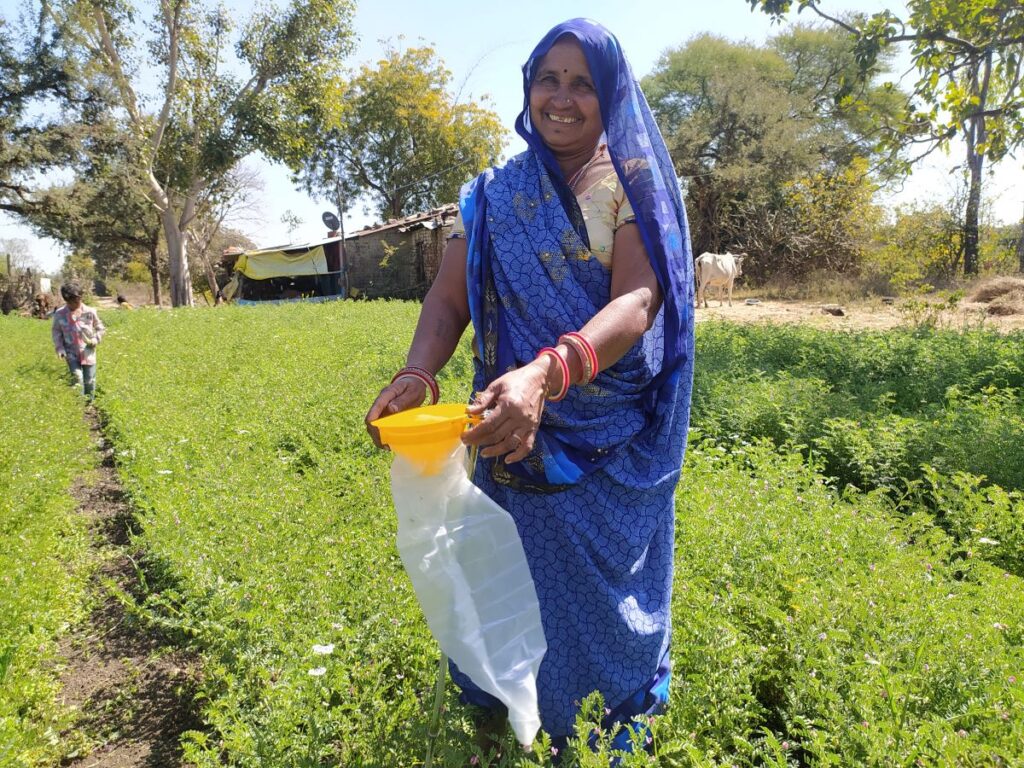
How is Technology Working for Farmers
“I never knew this phone could change my life,” says Sona Bai, proudly displaying her phone on which she receives regular weather and agriculture-related advisories. These advisories are a result of the information collected by the hyper-local weather station installed next to her farm. “I listen to the advisories using the missed call facility,” she says.
“The Solidaridad team has trained me to send a missed call to the Smart Agri helpline. The helpline calls me back and gives me information on the weather forecast for the next week, any pests common in our area, best time to irrigate and good agricultural practices,” says Sona. This, she says, has helped farmers like her take informed decisions about agricultural activities on their farm.
In October, Sona received an advisory on heavy rainfall on her phone. Harvesting was just over and the soybean crop was kept out for drying. Sona and other nearby villagers followed the advisory, shifted the harvested crop to a safer place and covered it. As a result, Sona’s soy crop was saved.
For 43-year-old Devli Kushwah, the advisories helped save the wheat crop and, in turn, prevent losses. “Last season, we were about to start irrigating our wheat crop when I received an advisory on my phone about a rain forecast. We decided to postpone the irrigation activity,” she says.
“Next few days, there was heavy rainfall. Had we gone ahead with irrigation, our standing crop would have been destroyed. Plus, we saved Rs 800-Rs 1,000 per acre on irrigation cost,” says Devli, who works with her husband Suresh on their 5-acre land in Gunga village of Bhopal district in Madhya Pradesh. “I now pay more attention to the advisories,” she says. The couple grows soybean, maize and wheat during the Kharif season, and gram and vegetables during Rabi.
In October 2022, Devli was among a group of farmers under the Smart Agri project who logged in from their phones and interacted with the Indian Prime Minister Narendra Modi, sharing their experience of how ‘smart’ advisories on their phones have changed the way they do farming. “It was a proud moment for me and my family,” she says.
The Smart Solutions
Helping Sona and Devli farm efficiently are smart devices like automated hyper-local weather stations, crop view cameras, insect traps and soil moisture sensors. Using Artificial Intelligence and Internet of Things, these devices, installed in the farms, capture information critical to farming like soil and air quality, wind speed, presence of insects and pests, and crop growth. They are low maintenance, powered through solar energy and connected to the Internet.
The data collected by these devices is also analyzed and reviewed by agricultural experts and shared with the farmers through localized mobile advisories. Farmers can access these advisories in their local language through push call, mobile application and through the missed call facility, and in some cases, through WhatsApp groups too.
“The outcomes of the Smart Agri Project are overwhelming. More than 5.50 lakh farmers across 10 states can access cutting-edge technologies and agronomic practices to overcome production constraints, as well as access better infrastructure facilities and profitable markets,” says Deepender Kumar, General Manager, Corporate Social Responsibility, Vodafone Idea Foundation.
Since its launch, the project has reached farmers in Madhya Pradesh, Maharashtra, Uttar Pradesh, Assam, Telangana, Rajasthan, Tamil Nadu, Odisha, West Bengal and Karnataka – and across soy, mustard, tea, cotton and sugarcane crops. It also supports farmers with intercropping. Some of the key outcomes of the project are:
- More than 5.50 lakh farmers are getting regular weather- and agriculture-based advisories in all the project areas
- Farmers are equipped to take informed and timely decisions on activities like: sowing and intercultural operations to ensure better germination, preventing spread of pests/diseases to remaining crops in case of a pest attack
- 23% increase in average yield – more than 90% farmers reported an increase in yield per hectare
- Adoption of efficient water management practices by farmers, with more than 80% farmers adopting these in some project areas, which in turn has reduced the number of irrigation cycles for the crops, thereby saving water
- Customized consultations on phones benefited farmers who earlier had access to limited information through agri-input outlets or Krishi Vikas Kendras (KVKs)
“The Smart Agri Project has enabled our farmers to make informed decisions related to agricultural practices. Smallholders, in particular, who were more susceptible to agricultural losses are now getting advanced and evidence-based solution to mitigate these losses, incurred due to climate change, lack of sustainable agricultural practices, unavailability of agricultural inputs on time etc.,” says Dr Suresh Motwani, General Manager, Soy and Palm Oil, Solidaridad. “Sona Bai and Devli illustrate how the combination of traditional farming and modern technology can bring about massive changes in agricultural production.”
Support from the Field Team
The digital aspect of the project is supplemented by the Solidaridad team sharing these advisories with farmer/s on the field and helping them decide on appropriate next steps for their crop, while also training them on sustainable agriculture.
The Solidaridad team encouraged Sona to give vermicomposting a try. Vermicomposting is the method of making compost using earthworms; this compost (or natural fertilizer) is rich in nutrients good for the soil. The team provided her a vermicompost bed and necessary training and assistance to get started.

Of her 1.5-acre land, she decided to turn an acre into a demonstration plot for good agricultural practices. Besides using the vermicompost on her soy crop, the practices included pre-sowing seed treatment, which helps improve seed germination, protects the seed from fungus, thereby contributing to improved yield during harvest. She monitored pest populations through yellow sticky traps and pheromone traps. In the harvest season of 2022, her crop yield increased to 8 quintals compared to 4-5 quintals in previous years, helping her earn an additional income of Rs 22,000.
“By using vermicompost, I saved nearly Rs 14,000 in a year, an amount I was earlier spending on buying fertilizers from the market, which made my soil hard,” says Sona, who also earns some extra money through the vegetables she grows on her field during summers.
Sona Bai is an inspiration for other farmer families in her village. “Seeing the increase in production in Sona Bai’s farms, villagers now come to me and ask me about yellow sticky traps, vermicompost and other good agricultural practices, which they want to adopt on their farms,” says Mukesh Jain, Cluster In-charge, Susner, Agar district.
With the profits, Sona has now bought a buffalo. After keeping aside milk for her family, she is selling the extra milk to a nearby dairy centre, and earning around Rs 150 daily.
Sona doesn’t want to stop here. She has acquired an additional 4.5-acre land on lease from her relatives to do farming.
More power to unstoppable Sona!


